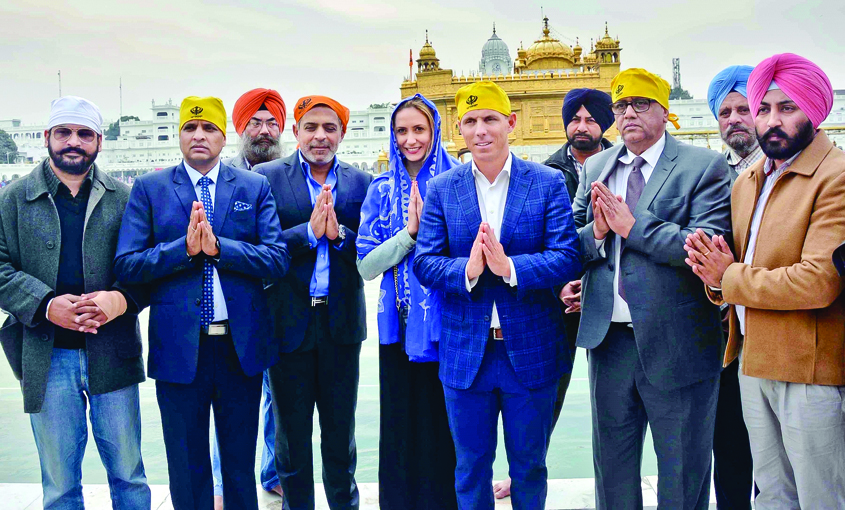Though Amarinder Singh has maintained that five ministers in the Justin Trudeau government, including Sajjan, were Khalistani sympathisers, and had prevailed upon the government to virtually prevent Amarinder’s entry into Canada where he wanted to meet people from the Punjabi community, the Canadian High Commission has clarified that Amarinder was welcome to visit Canada. Many have also said that though the Ontario Assembly’s motion may be an irritant to India-Canada relations, it is not a “body blow”.
The High Commission, extending an invitation to Chief Minister Amarinder Singh, said, “The comments regarding Canada’s ministers are both disappointing and inaccurate. We regret that the Chief Minister of Punjab is unavailable to meet Canada’s Minister of Defence. The Chief Minister is welcome to visit Canada.”
A week ago, 34 out of 107 Members of Provincial Parliament (MPPs) of the Ontario Legislative Assembly in Canada passed a motion to recognise the 1984 anti-Sikh riots in India as a “genocide”. However, the media, social commentators as well as politicians in Canada criticised the motion, saying that only a group of Sikhs in Canada could relate with it.
Politicians from both the Liberal and Conservative parties of Canada had denounced the genocide motion. Deepak Obhrai, Member of the Canadian House of Commons since 1997 from the Conservative Party of Canada, reportedly told the local media, “Motion M-46 is a divisive motion that will only bring disharmony to the Indo-Canadian community. Furthermore, I am deeply disturbed that this motion was passed by only 34 out of 107 MPPs (Members of Provincial Parliament) of Ontario legislature and was done so without any research or due diligence.”
Deepika Damerla, a Liberal Party member and MPP in the Ontario Legislative Assembly, had voted against the motion, which showed that all the liberal members were not on the same page about the motion.
The motion has been termed a “body blow” to diplomatic channels between the two countries since Indian pro-business associations like the Canada India Foundation had been lobbying to stop the motion, but the efforts proved unsuccessful.
However, Michael Kugelman, Deputy Director, Asia Program, said, “This is a parliamentary move where it is important to emphasise that we’re looking at a single, legislative motion. It doesn’t necessarily represent the views of the government or even the views of the legislature on the whole. If cooler heads prevail, New Delhi will realise that this motion simply represents the views of some legislators, and not the Canadian government on the whole. This motion will undoubtedly be an irritant to Indo-Canada relations, but it’s no body blow. The relationship will survive.”
Canadian journalist Douglas Todd reportedly said, “Ontario’s politicians have fallen into a word-definition trap by declaring the 1984 massacre of Sikhs a genocide. The bloody 1980s conflict between the Indian government and violent militants that led to anti-Sikh riots was a horrible event. But it was not genocide. It was a pogrom.”
Among other speculations, commentators also saw the motion as a way to appease Sikh voters for the elections due next year, given that recent polls show Ontario premier, Liberal Party’s Kathleen O’Day Wynne’s popularity falling significantly.
However, 1984 anti-Sikh riots, in which an approximate 3,000 Sikhs were massacred, is not an unpopular topic in Canada. Sikh Nation, a known community organization, has been criticised for using the incidents of 1984 to plead with Sikhs in Canada to donate blood. The campaign’s website says, “As a tribute to the events of 1984 and with the vision of bringing people together around the world, the Sikhs started the Blood Donation Campaign in 1999.”
Former Liberal Party leader Michael Ignatieff has repeatedly criticised activist Sikhs who have been pushing for India, Canada and other nations to declare the 1984 sectarian violence a genocide. “I will never stand with those who seek to polarise communities, or aggravate the tensions around long-standing conflicts that divided us in other lands,” Ignatieff said in 2010.
Back home, the RSS-affiliated Rashtriya Sikh Sangat has urged the Ministry of External Affairs (MEA) not to defend the wrongs done by the Congress government. Sikh Sangat president Gurcharan Singh Gill urged Union Minster for External Affairs Sushma Swaraj to understand the “pain” expressed through the Ontario Assembly’s motion and work to recognise the anti-Sikh violence of November 1984 across India as a “genocide”.
Kugelman said: “New Delhi should register its displeasure with Canada, but then acknowledge that these things happen in democracies, restate its support for a strong relationship with Canada, and then move on. Given all of New Delhi’s concerns, both at home and abroad, this simply is not worth dwelling on and brooding about.”

